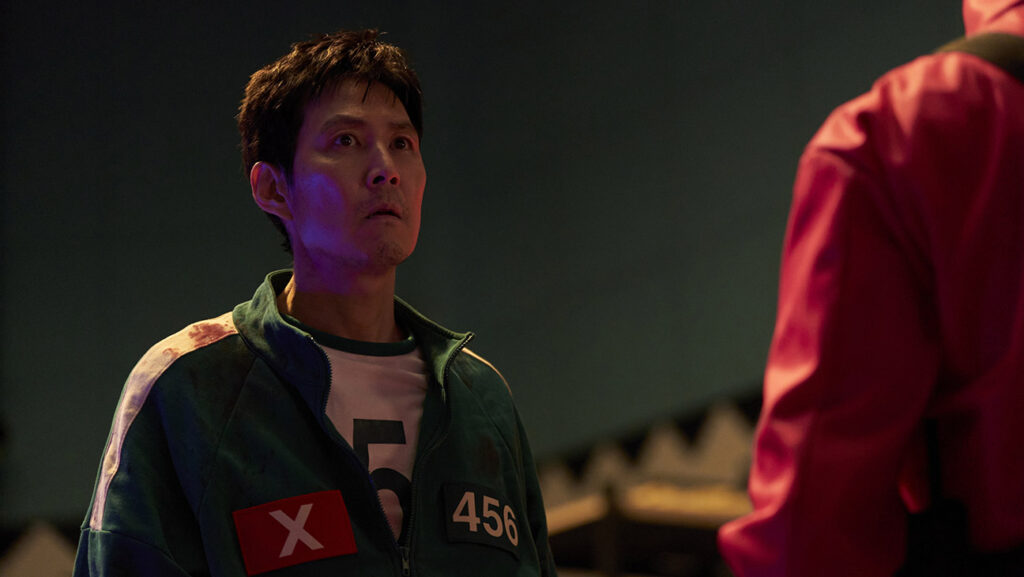
Squid Game S3 Lee Jung-jae as Seong Gi-hun in Squid Game S3 Cr. No Ju-han/Netflix © 2025
[This story contains MAJOR spoilers from the Squid Game season three finale, “Humans are…”]
No one anticipates the release of the final season of Squid Game more than its creator, Hwang Dong-hyuk. “For the past six years, there hasn’t been a single day that went by without me thinking about Squid Game,” says the writer and director of every episode of Netflix’s most globally popular show. “This is something that has completely consumed me.”
After launching with season one in 2021 to global acclaim, it was an obvious decision for Hwang and Netflix to continue their partnership. Seasons two and three were produced back-to-back, with the second season debuting six months ago. The third and final season is now available, concluding the South Korean dystopian drama with its final six episodes.
The Conclusion of Gi-Hun’s Journey
As Hwang had promised, the final episodes bring closure to the story of Seong Gi-hun (Lee Jung-jae), the indebted father who emerged victorious in the deadly Squid Games in season one and returned to dismantle them in subsequent seasons. Despite his heroic efforts, Gi-hun does not survive. He sacrifices himself so that the newborn baby of another player, Jun-hee (Jo Yu-ri), can live. The baby, whose parents both perished during the games, ultimately assumes the role of Player 222 and wins the Games.
The duality of bleakness and hope in the ending of Hwang’s anti-capitalist thriller leaves viewers with much to ponder, especially with the final scene featuring a surprise cameo from Oscar-winning actress Cate Blanchett as the Recruiter for an American version of the Squid Games. This scene either concludes the story by reinforcing the cyclical nature of the Games or opens the door for a potential spinoff series. Netflix has not yet commented on this possibility.
Behind the Scenes with Hwang Dong-hyuk
In an interview with The Hollywood Reporter, Hwang discussed the final, timely message of Squid Game and its potential future. “If season three is met with as much love as people loved season one, then I think I’m definitely going to feel less empty about saying goodbye,” he admits.
Reflecting on the series’ mass appeal, Hwang attributes its success to the unique characters and stories that resonated globally. “I think I was more aware, if not anxious, about how other people were going to react to the story when I was creating season one,” he explains. “But in seasons two and three, based on that foundation, I was able to tell the story the way I wanted to tell it.”
Modern Society Reflected in the Games
Hwang reveals that the new voting aspect with the Os vs. the Xs was inspired by current global events. “Recently, whether it’s within Korea or in America, the conflict that begins because of elections and votes is just getting worse,” he observes. “There is so much populism and propaganda, as well as AI-generated fake news. I wanted to reflect all of these current events in Squid Game.”
The expanded focus on the VIPs in season three also mirrors societal changes. “In the past, the people symbolized through the VIPs were behind the curtain, hidden while controlling politics and society,” Hwang notes. “However, I feel like more and more these days, the people who do the controlling rise above the surface more.”
The Risky Storyline of Jun-hee’s Baby
One of the most poignant storylines involves Jun-hee’s baby, who becomes a central figure in the Games. “Since it is the finale, I thought that raising the stakes and taking a bigger risk in true Squid Game fashion was the right way to go,” Hwang explains. “Through the baby, Gi-hun is able to show those themes in a more detailed way.”
The baby represents both human conscience and the future generation. “The reason we need to try to right the course of the world is because we want to give a better world to our future generation,” Hwang emphasizes.
Gi-Hun’s Final Arc
Gi-hun’s journey concludes with a profound transformation. “The biggest challenge was, how far did I want to throw Gi-hun down the pit, and then from where do I make him rise up again?” Hwang shares. “The process of Gi-hun’s arc, where that immense amount of guilt consumes him, was the biggest challenge.”
His character’s evolution is marked by a pivotal moment in season three, where he commits “an irreconcilable original sin” by killing another player. “Hopefully, after watching the entire show, the audience will understand and support the conclusion,” Hwang hopes.
Future Possibilities and Personal Reflections
While the series concludes, Hwang acknowledges the potential for spinoffs. “I think the story ended in a manner where it doesn’t need a further story to be told,” he states. “If I were to do a spinoff someday, I think I would rather choose to go back and see what happened during that time gap [between seasons one and two].”
Reflecting on the pressure of creating the series, Hwang admits to losing several teeth due to stress. “To be free from all of that fear and burden, I do feel relieved,” he confesses. “But I hope that if season three is met with as much love as people loved season one, then I think I’m definitely going to feel less empty about saying goodbye.”
The final season of Squid Game is now streaming on Netflix, leaving fans to speculate on the implications of its ending and the potential for future stories within this compelling universe.






